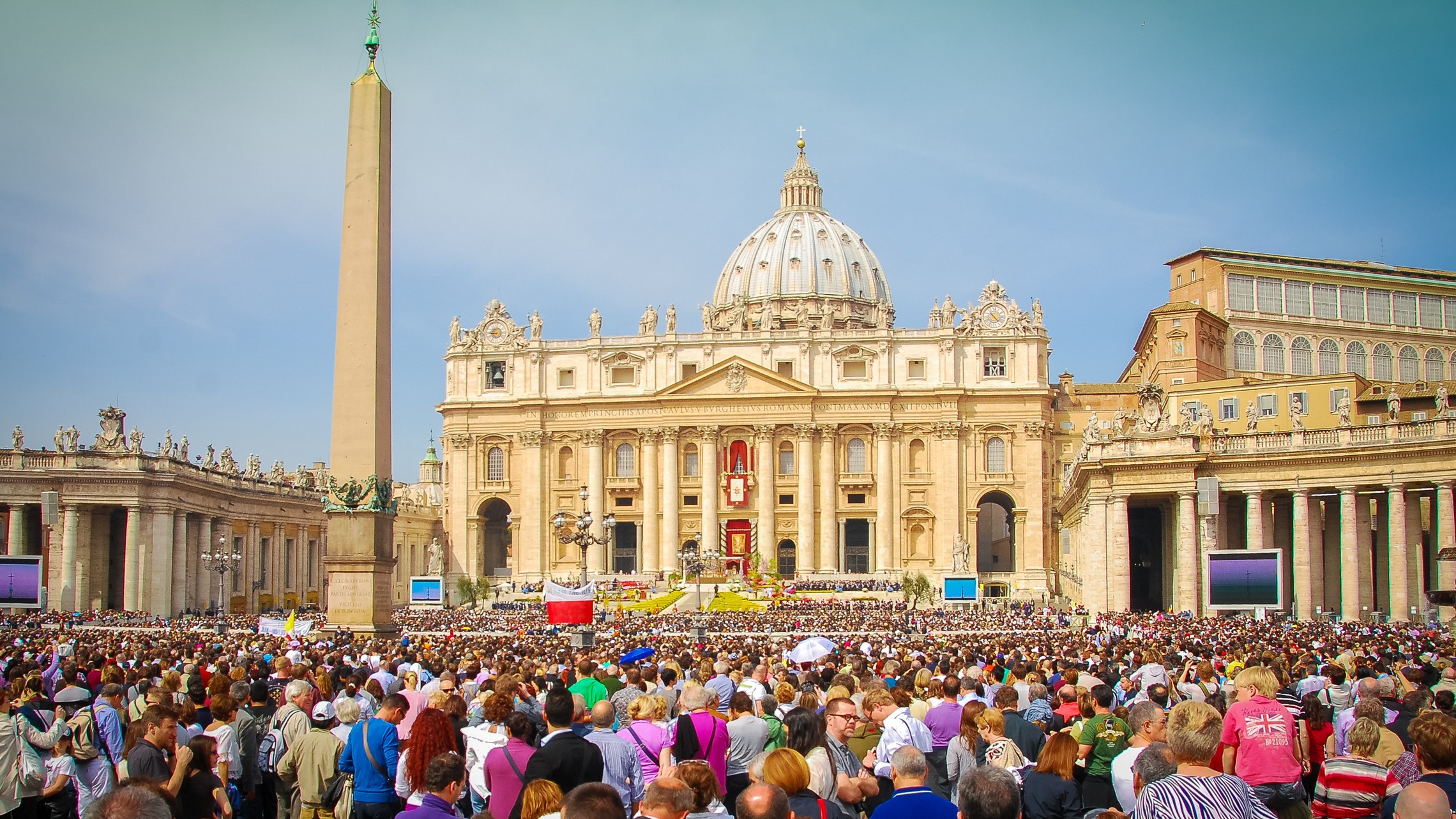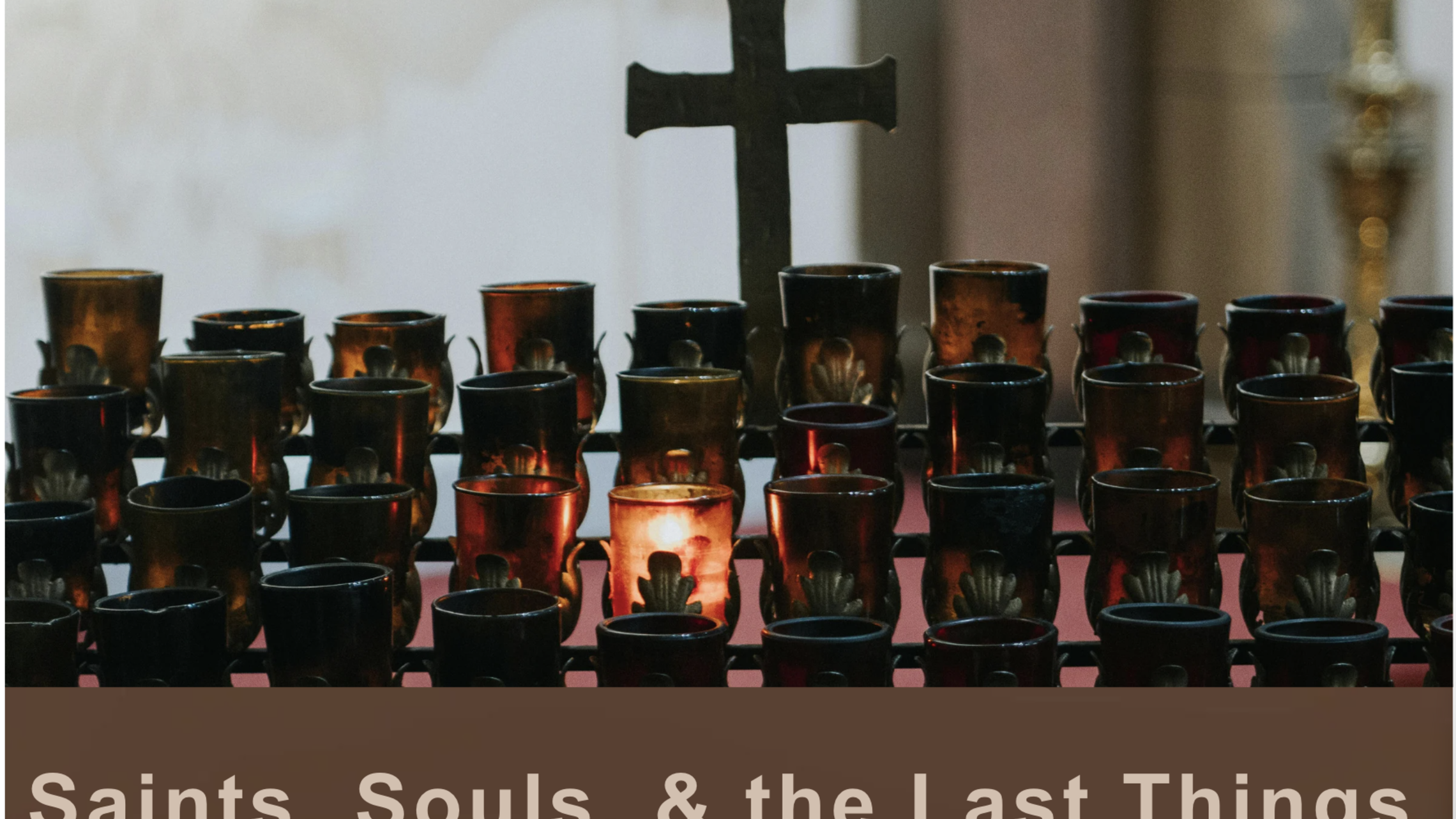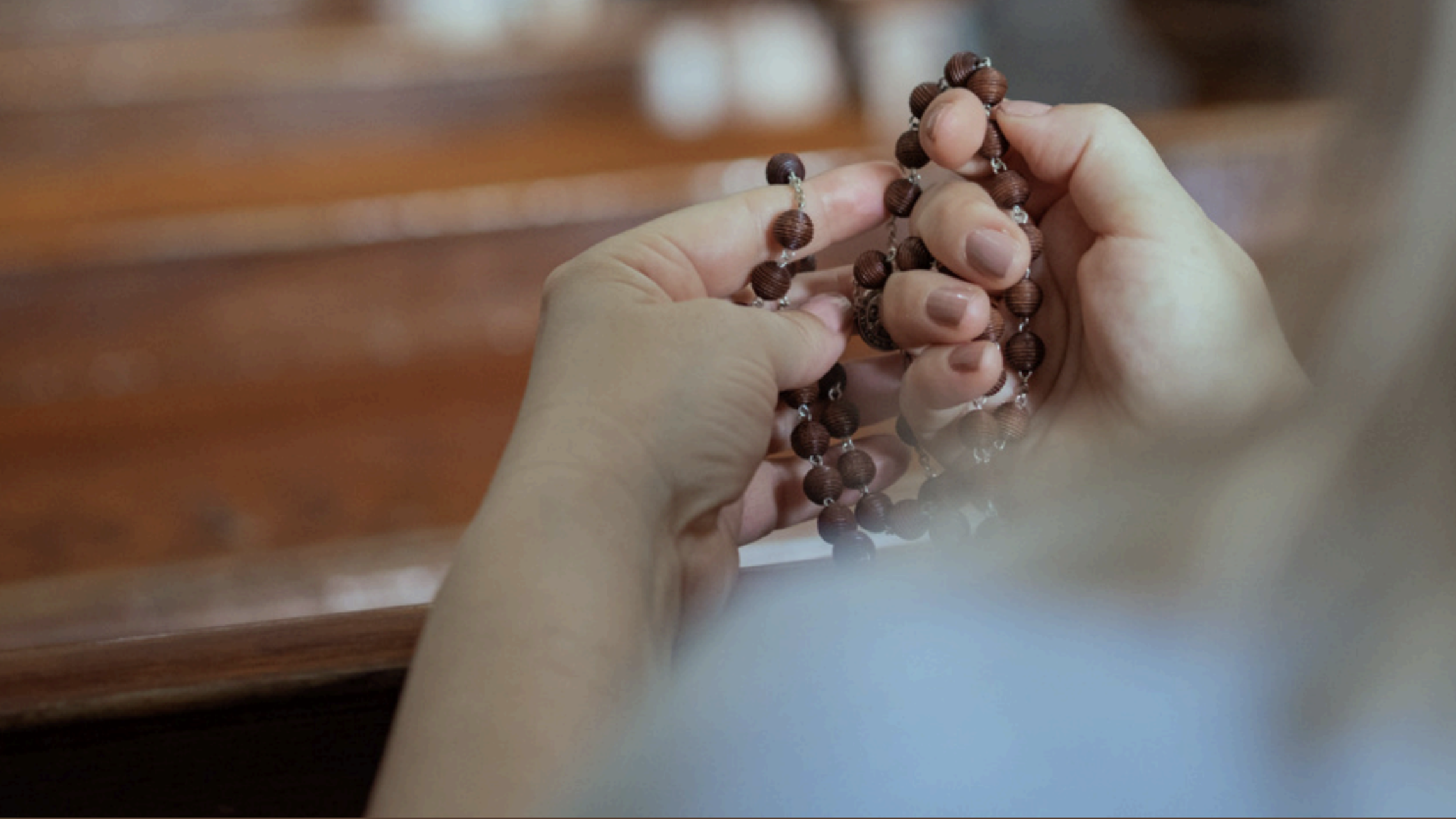Chronicles of Innocence

Personal Christmas Reflections
Chronicles of Innocence
Personal Reflections on Christmas by Fr. Frederick Edlefsen
Sorting through faded childhood photos, a thought occurred to me: Was I ever that young? Nostalgia says, “to go home.” No, I don’t want to go back in time. I’d only go back if I could take “what I know now” with me. I just want to go “home.”
Home means innocence. Home means peace. Peace within myself, peace with others, peace with God, peace with nature.
As for peace with nature, I recall water skiing at age twelve on sun spangled Lake Verret. I remember it with geographical precision. It was a mile from Attakapas Landing, southwest of Napoleonville, south southeast of Pierre Part, north northeast of Morgan City, east of the Belle River on the edge of the Atchafalaya Basin. For ten minutes, it was the most beautiful place on earth. Cruising red, white, and blue “Spirit of ‘76” water skies behind a fifteen-foot runabout powered by a 50-horsepower outboard Johnson, I recall the bliss off gliding over the waters of paradise. “The Spirit hovered over the waters” (Genesis 1:2). I was intrigued how local Cajuns ran 200-horsepower Evinrudes behind wooden skiffs, skimming water like low flying ducks. But on skis behind 50 horses, breezing through the luminous, Cypress-lined lake, God was real! “Nascantur in admiratione” – “Let them be born in wonder.” Like the Little Drummer before the Crib, it was a boy’s contemplation. A fleeting prayer of childhood. If only we could pray like that always!
For me, “home” means peace, innocence, and contentment. Governments and economies exists to protect and promote “home.” How we have forgotten this! It’s no accident that, in the French Catholic world of my upbringing, the word “cher” (dear) and “chez” (home) were, in effect, the same word. I recall fondly my aunts calling me “cher” (pronounced “sheh”). Or, when they held a baby, they’d say “Cher bebe” (“Sheh bay-bay”). To be “dear” is to be “home.” Elegant tenderness seems lost on today’s rude and rough spoken world. But it’s not lost on me. Oh, how nice it was to assume innocence the norm and all else mischief.
The times in which I grew up were not innocent. But I didn’t know that. I say this in my sadder but wiser age, looking back. I was born in the ‘60s. A kid in the ‘70s. A teen in the late ‘70s and early 80s. A college dude in the ‘80s. Adulthood tossed me into the ‘90s. Even in my boyhood, I had inklings that all was not well in the world. Nonetheless, I figured that most people were good at heart. As for the “bad,” if they’d only hang out with me for a week they’d snap out of it – either that or they’d end up in jail. It was a long and painful journey to the realization that this was not the case. Mortal sin is deeper and darker than that. I was raised naïve. I still occasionally catch myself in that naïveté. And I am grateful for it. But it’s still hard to face the fact that sin is not just a peccadillo absolved by a laugh or a conversation, despite almost twenty-three years of “hearing it all” as a priest. I’m still inclined to say, “You really didn’t mean that,” and “move on.”
But that’s not always true. Nonetheless, I long for the innocence of the world I thought I lived in as a child. Pope Benedict XVI said that Heaven would be like his childhood. I get it. The world around him was not innocent. But his parents did their duty: They, like Mary and Joseph, protected the Mystery of childhood. Kids are free to run around if we build fence around the yard.
How does one venture outside that fence and remain innocent? How does a man remain childlike and yet be a man, confronting the hard facts and choices of a sin-sick world? How can a poet be pragmatic?
I don’t know. It’s a compromising dilemma. I have two ways of dealing with it, sometimes tearfully: (1) I ask the Holy Spirit for the Gift of Counsel, the grace to navigate insoluble problems, and (2) I ask the Virgin Mary to undo the damage I’ve done each day. At times I naïvely err on the side on trust. At times I cynically err on the side of doubt. Most of the time it’s a crapshoot. In the meantime, I flashback to my innocence, when such battles didn’t trouble my conscience: the free laughter of wrestling with my Beagle, Rusty, in the snows of northwest New Jersey at age 6 (before moving South); the thrill of seeing snowcapped mountains for the first time on a Colorado at age 12; the inebriating luck of somehow getting a dessert of vanilla ice cream floating in blackberry brandy at age 14 at a restaurant with my grandparents.
My first hint that all was not well in the world came at age five. It’s a lucid memory. I was playing with a friend along Arrowhead Trail, across the street from Lake Mohawk, New Jersey on a spring morning. Cool sweet breezes blew from the lake over a patch of Virginia Bluebells along the road. For reasons I don’t recall, my friend told me that, when we become men, we must go to war and die.
Even five-year-old innocence was challenged by TV reports and adult conversations about the Vietnam War. I felt a deep sadness, a depression you might say. But it was fleeting, like a brief dip on a hilly road. It was my first encounter with a primeval sadness that’s within all of us: the sadness that prevailed after Cain killed Abel, knowing that history had been launched on a tragic course.
But at age five, I was too young to reflect on the human condition. What could I have known of this? It’s normal and healthy for a child think nothing is wrong with the world. We should protect that little foretaste of Heaven we call childhood. As for my home, it was free if you followed mom’s rules. There was no guard to keep up. Life was adventure. Discovery. A playground, you might say. Despite my friend’s take on the Vietnam War, despite my problems and growing sense of the world’s complexities as I grew older, I trusted my hopes. Moral danger was a minor consideration, so it seemed.
But that was boyish. A man cannot and does not see the world that way. He must go outside the fence. He cannot remain a boy forever. A boy cannot experience either tragedy or evil and remain a boy. He must grow up. That’s why God became a Child – and then a Man. Only in Christ can we remain innocent and yet grow up. Only in Him can we confront the world’s sadness without becoming cynical. We must keep our eye on Christian basics.
I invite you, whoever you may be, to make this simple profession of Faith – a child’s Creed – in your heart’s silence: “By the power of the Holy Spirit, the Son of God became Man in the womb of the ever Virgin Mary. She is the Mother of God. Her Child is the Father’s Gift to us. The Father sent this Child for one reason: to restore our innocence.
Do you see the beauty of this? Can you read it with a child’s limpid heart? It invites you to consider something you may not have thought of before: Christmas asks something of you: Stay in touch with your childhood innocence and yet grow up. Baptism and Confirmation will help you do this. Christmas invites you to confess your sins, repent and change your heart so that you can “go home” again. It invites to you to revisit the innocence – the “home” – of your Baptism. It invites you trust the Christmas Mystery: Evil is conquered by Innocence.
God’s Childhood reveals something else to us, about ourselves: None of us, in any way, is a mistake. Despite the tragedies and cruelties of this world, despite the unrelenting hatred of the Dark Side, God loves man. No matter what the circumstances of your birth, childhood, or adulthood, you are personally willed and loved into life by God. The Baby Jesus reminds us not to underestimate God’s Goodness. “In Him was life, and that life was the light of man” (John 1:4). There is no such thing as an unwanted child or unwanted person.
God personally identifies Himself with every person. Christmas kisses the heart with this fact: Each of us is willed, loved, known, wanted and planned by God. The Cross kisses us with another fact: Our sins can be forgiven, and our sufferings redeemed. We will rise from the dead and everything in our lives will be made fresh and beautiful. All things beautiful and good in this world are but sneak previews of a world to come. We will wake up in Heaven some day and say, “I have become a child again!” We will go Home.
Categories:



